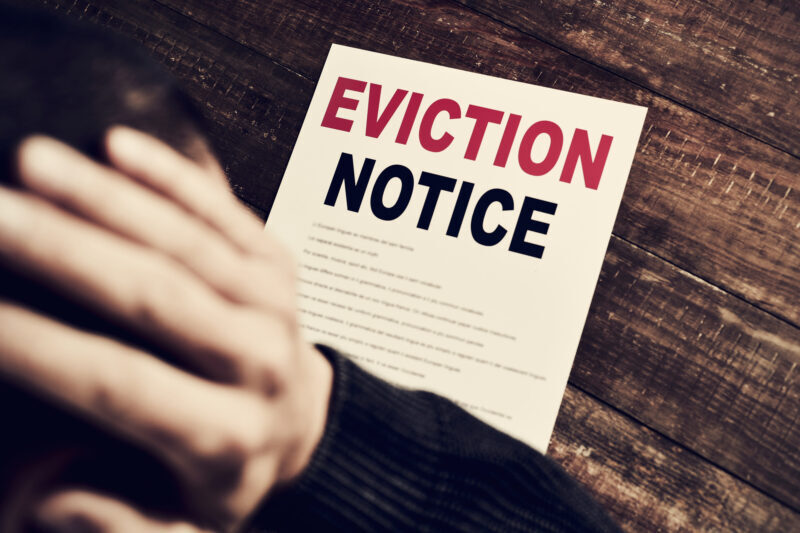Until October 2021, government-funded housing left millions of landlords without income for over a year
To prevent homelessness, the government did not allow HUD landlords to evict renters for over a year. Attempting to protect at-risk Americans, the government left a vulnerability gap for landlords to fall in.
Allocating billions to COVID-related relief, neither tenants nor landlords saw a penny.
Now, with the new HUD eviction rules, both landlords and tenants will have access to the billions of relief dollars that have yet to be claimed. Let’s take a look at how this will be possible.
The Effects of Covid-19 In HUD Housing
As social distancing became more and more necessary throughout the year 2020, industries both big and small were forced to shut down. Those who could work from home did, while millions of others lost their jobs.
The government has been hard at work to mitigate the effects of the COVID pandemic. However, millions of Americans found themselves with reasons for eviction, as they were suddenly faced with no income. This was difficult enough for the average family, but those in need of public housing were especially vulnerable.
At-risk families are already susceptible to food shortages, unsafe neighborhoods, and social expulsion. The addition of mass job loss also put many at risk for homelessness.
But residents in assisted living programs provided by the U.S. Department of Housing and Urban Development (HUD) were not the only ones to suffer. Landlords were also put in a vulnerable position. With a majority of their assets in real estate, the sudden inability of tenants to make rent payments meant a huge drop in income for landlords as well.
On top of this, the landlords were not allowed to evict non-paying tenants for over a year. While government relief existed in the billions, minimal aid found its way to landlords. This was the reality for landlords nationwide until October 2021, where HUD issued new eviction rules.
What Are the New HUD Eviction Rules?
The new HUD housing eviction rules give tenants double the amount of notice time before being evicted due to lack of rent payment. Before the pandemic, tenants had 15 days’ notice to vacate the premises. The new HUD eviction rules now give tenants 30 days.
HUD landlords are also required to provide renters with information on federal relief programs and how to apply for them. This is great for landlords that have been left with tenants who have no idea how to make rent.
The information is to be distributed with the eviction notice. Landlords are also required to provide HUD renters with information on HUD’s new rules and regulations as soon as possible.
The purpose of the new HUD eviction rules is to provide better access to the billions of dollars set aside for emergency relief. The HUD rules on eviction are set in place so that both tenants and landlords benefit from the funding. This is especially important for landlords who were left with the short end of the stick for so long.
How Do These Rules Affect Landlords?
There are billions of dollars set aside to reduce potential homelessness during the COVID-19 pandemic. The government provided renters with relief, leaving landlords to fend for themselves. In other words, the federal government attempted to save one market only to put another at risk.
landlords have lost billions since the start of the pandemic. HUD’s eviction rules should provide landlords with better protection. This is done by reinstating their ability to evict and providing renters with the ability to pay rent.
Relief is reserved for individuals and families that meet specific income requirements. This, in effect, helps those most vulnerable, while ensuring that the landlord still gets paid. Families that do not qualify have an extended period to find other accommodations.
How Well Are These New Regulations Expected to Do?
Some states have a more organized system for accessing government funding. Other states’ municipality processes are more challenging.
Renters will benefit from the new HUD rules regarding eviction depending on their state. A state that is better at distributing information will see better results. A state that is better at providing assistance programs is also more likely to see positive results.
Landlords can expect to benefit from the new rules no matter where they find themselves in the country. In states good at distributing information, renters will be better educated on rent relief. This is great for landlords who can now expect to be paid.
In states without good information distribution or assistance services, homelessness will likely increase. The number of otherwise preventable evictions will increase. But, landlords will be able to fill their housing units with paying tenants.
States without functioning assistance programs will thus see an increase in homelessness. A higher number of vulnerable people means a larger strain on municipalities and bureaucratic systems.
A Better System Overall
New HUD eviction rules provide a better alternative for both tenants and landlords. Where government emergency relief has been impossible to access, now tenants and landlords will be able to benefit.
For those living in states with poor social service systems, landlords should still be able to benefit from the new HUD eviction rules.
Tenants can expect to be better educated and equipped to deal with COVID’s economic effects, while landlords have gained back the right to evict. The likeliness for landlords to receive rent and even back-rent have also drastically increased.
For more information on the new HUD eviction rules, check out HUD’s official website.

